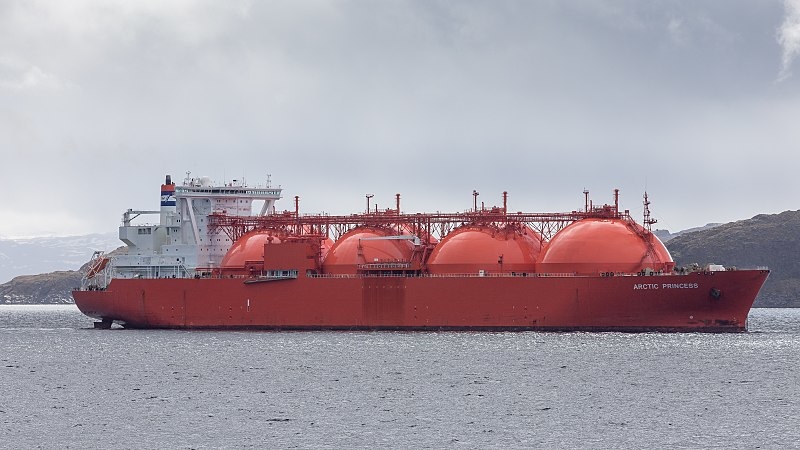Rising Brazil: The Choices Of A New Global Power
What should we expect from a newly powerful Brazil? Does the country have the capacity and leadership to be a central actor in addressing critical global and regional problems?
Energy continues to be a bright spot in the US-Latin America relationship and new developments, like an uptick in US LNG exports, offer opportunities to increase energy security and cooperation across the Western Hemisphere, said panelists at an event co-hosted by the Inter-American Dialogue and Institute of the Americas on December 15th.
Energy plays a central role in bilateral and trilateral cooperation with Mexico and Canada. The United States is working to expand this cooperation through increased data sharing for cross-border transmission, generation, and renewable energy mapping, as well as through technology sharing for carbon capture and storage, noted Department of Energy Deputy Assistant Secretary Beth Urbanas.
 The three countries work on energy issues both trilaterally and through larger multilateral efforts like APEC and the G20. Mexico also recently joined the International Energy Agency and the North American Electric Reliability Corporation (NERC), providing two additional avenues for cooperation. Mexico joining NERC benefits both Mexico and the United States, noted Mark Nelson, regional vice president and director of issues management at Sempra, as Mexico can help provide system reliability and voltage support to the United States in times of energy distress.
The three countries work on energy issues both trilaterally and through larger multilateral efforts like APEC and the G20. Mexico also recently joined the International Energy Agency and the North American Electric Reliability Corporation (NERC), providing two additional avenues for cooperation. Mexico joining NERC benefits both Mexico and the United States, noted Mark Nelson, regional vice president and director of issues management at Sempra, as Mexico can help provide system reliability and voltage support to the United States in times of energy distress.
Recent US corporate investment in Mexico following its energy reform has also strengthened bilateral energy ties. Oil majors are entering the downstream space in Mexico, even though they are largely divesting from those assets in other countries, said Carlos Sole, partner and Latin America practice co-chair at Baker Botts.
A recent uptick in US natural gas exports represents another significant opportunity for US-Latin America energy trade and investment, said John McCarrick, deputy assistant secretary at the Department of State’s Bureau of Energy Resources. LNG exports – which began in earnest just last year – reached 465 billion cubic feet in the first 9 months of 2017, already 2.5 times greater than total 2016 LNG export volumes. LNG exports are projected to reach 4.4 trillion cubic feet by 2035.
At the same time, Latin America is increasing its capacity to receive LNG. Regasification capacity in the Americas, excluding the United States and Canada, will reach 50 million tons in the next few years, said Leslie Palti-Guzman, director of global gas at Rapidan Energy Group. Central America and the Caribbean alone will account for 8 million tons of this regasification capacity, and will be a significant growth opportunity for US LNG exporters.
These terminals may see low utilization rates, however, as LNG is used more as a backup fuel in Latin America. But the flexible contract terms offered by US LNG exporters and the United States’ geographic proximity make the fuel particularly attractive as a backup to baseload power and intermittent renewable energy. In Brazil, for example, US LNG is imported when hydropower supply is lower during the dry season, said Edmar Luiz de Almeida, professor at the Federal University of Rio de Janeiro’s Institute of Economy. In Central America and the Caribbean, US LNG can also help fill the vacuum left by Venezuela’s Petrocaribe shipments, which have fallen sharply in recent years, and a decline in shipments from Trinidad.
Going forward, the US government may try to create a more favorable regulatory environment for gas exports, but the success of US LNG exports also depends tremendously on global gas demand.


What should we expect from a newly powerful Brazil? Does the country have the capacity and leadership to be a central actor in addressing critical global and regional problems?
President Lula da Silva triumphantly announced that he and his Turkish counterpart had persuaded Iran to shift a major part of its uranium enrichment program overseas—an objective that had previously eluded the US and other world powers. Washington, however, was not applauding.
The question remains if Mexico has achieved a degree of institutional development consistent with its participation in those organizations.
 Joachim Kohler Bremen / CC BY-SA 4.0
Joachim Kohler Bremen / CC BY-SA 4.0